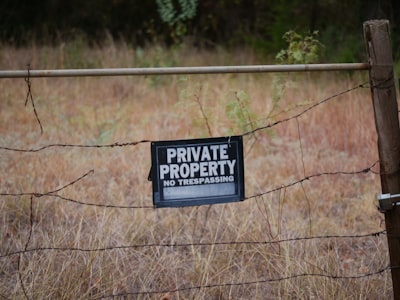Key Highlights
- Abandoned property law in the United States requires following specific legal procedures when you find personal property left behind.
- There is a key distinction between abandoned property, which the owner intentionally leaves, and unclaimed property, which is often held by an institution.
- State laws vary significantly, so the rules for handling such property in California may differ from those in Georgia.
- Properly notifying the last known owner of the property is a critical step to avoid legal complications.
- If the property remains unclaimed, you may be able to sell or dispose of it after a certain period of time.
- Landlords have specific legal obligations when a tenant leaves belongings in a rental unit.
Introduction
Have you ever found something valuable left behind and wondered what to do? The law for abandoned property in the United States can seem complicated, but understanding it is important for everyone, from landlords to individuals. This guide will walk you through the essential rules and procedures. Knowing your rights and responsibilities can help you avoid legal issues and handle these situations with confidence. Let's explore what you need to know about managing abandoned property correctly.
What Is Abandoned Property Under US Law?
Under US law, abandoned property is personal property that the rightful owner has intentionally left behind with no plan to reclaim it. This creates a maze of legal questions about ownership. Common signs of abandonment include a tenant moving out without their belongings or leaving items in a public place for a long period of time.
To claim abandoned property, you must follow specific legal procedures, which often involve notifying the original owner or law enforcement. Ignoring these steps can lead to legal complications, as the owner of the property might still have rights to it.
Legal Definitions and Classifications of Abandoned Property
The legal definitions surrounding found items can be specific. Abandoned property is defined by the owner's intent to give up all rights to it permanently. This is different from lost property, where the owner accidentally misplaced it, or mislaid property, which was intentionally placed somewhere but then forgotten.
In legal terms, there are also distinctions between abandoned and unclaimed property. Abandoned property refers to items someone has clearly discarded. Unclaimed property, however, often involves money or assets held by financial institutions or companies that have lost contact with the owner.
These classifications matter because they determine how the items must be handled. The rules apply to personal property, which includes movable items like furniture or vehicles. They are distinct from the laws governing real property, such as land and buildings.
Differences Between Abandoned Property and Unclaimed Property
Understanding the difference between abandoned property and unclaimed property is crucial, as the legal obligations for handling each are not the same. While both involve items no longer in the possession of the owner of the property, their legal status is distinct.
The primary differences can be broken down as follows:
- Intent: Abandoned property involves a clear intention from the owner to relinquish ownership. Unclaimed property usually means the owner cannot be located, but they haven't intentionally given up their rights.
- Holder: Abandoned items are typically found by individuals or landlords. Unclaimed property is often held by banks, insurance companies, or other businesses.
- Handling: The process for abandoned items is managed by the finder following state law. Unclaimed assets are turned over to the state's treasury department for safekeeping.
For example, a couch left on the curb is likely abandoned property. In contrast, a dormant bank account is considered unclaimed property.
State-by-State Overview of Abandoned Property Laws

There is no single federal law governing abandoned property; instead, each state has its own specific rules. This means your responsibilities can change dramatically depending on your location. Most states require you to make a reasonable effort to find the owner of such property, which might include sending a notice to their last known address.
Because the laws are so varied, it's essential to understand the regulations in your specific state. The following sections will provide a closer look at how California and Georgia handle these situations, highlighting their unique requirements for landlords and finders.
California’s Regulations for Handling Abandoned Property
In California, landlords must follow a strict process when a tenant leaves abandoned personal property in a rental unit. California law, specifically the California Civil Code, dictates that you must first determine if the property has been truly abandoned. This often occurs when a tenant vacates without notice or leaves items behind after the lease ends.
Once you confirm abandonment, you must provide the former tenant with a written notice. This notice must describe the items, state where they are being stored, and provide a deadline for retrieval. California Civil Code §§ 1983-1989 outlines these requirements. The time period for the tenant to claim the property depends on how the notice was delivered.
If the property isn't claimed, its value determines the next step. | Property Value | Required Action under California Law | | --- | --- | | $700 or less | You can keep, sell, or dispose of the property as you see fit. | | Over $700 | You must sell the property at a public auction following specific procedures. |
Georgia’s Property Owner Rights and Reporting Responsibilities
Unlike California, Georgia law does not have specific, detailed rules for landlords handling a tenant's abandoned property. This gives property owners more flexibility but also means having a clear lease agreement is essential. Property owner rights in Georgia are often defined by the terms outlined in the signed lease.
Many Georgia lease agreements, including the LeaseRunner Georgia Residential Lease, explicitly state that the landlord is not responsible for storing or disposing of personal items left behind. By having the tenant initial this clause, landlords can protect themselves from future disputes with the former tenant or their heirs.
If a property is abandoned, landlords in Georgia have several options. They can terminate the lease, find a new tenant to mitigate losses, or leave the unit empty and hold the original tenant responsible for the remaining rent. Documenting all signs of abandonment and communication attempts is a crucial part of the reporting responsibilities.
Legal Procedures for Discovering and Managing Abandoned Property
When you discover what appears to be abandoned property, you can't simply claim it as your own. Following the correct legal procedures is essential to avoid potential legal complications down the road. The process generally involves identifying the property, notifying potential owners, and storing it safely for a designated period.
The initial steps are critical for ensuring the disposition of property is handled lawfully. From contacting law enforcement for valuable items to sending formal notices, each action you take matters. The next sections will detail these practical steps.
Steps to Take Upon Finding Valuable Property in Public or Private Places

Finding valuable personal property can be exciting, but it comes with legal obligations. Your first priority should be to handle the found property responsibly and legally. The right course of action protects you and respects the original owner's rights.
Here are the immediate steps you should take:
- Do not assume it's yours. The property still legally belongs to someone else.
- Assess the situation. If you find it on private property, like in a store, turn it over to the manager. If it's in a public place, your responsibility may be different.
- Contact law enforcement. For valuable items, reporting them to the local police department is a wise and often legally required step. They can log the item and help locate the owner.
- Secure the property. While you are figuring out the next steps, keep the item in a safe place to prevent damage or theft.
Following these practices helps you meet your legal obligations and avoid any accusation of theft. It's the best way to handle found property correctly.
Notification Requirements for Owners and Legal Claimants
A crucial part of managing abandoned property is fulfilling the notification requirements. You must make a good-faith effort to contact the owner of such property. For landlords, this means sending a formal written notice to the tenant's last known address, which could be the rental unit itself or a forwarding address they provided.
This notice should be detailed. It needs to list the abandoned items, state where they are being held, mention any storage costs, and give a clear deadline for the owner to claim them. Using public records can sometimes help locate an owner if you have limited information, but the primary method is contacting their last known address.
Complying with these statutory deadlines is essential. For instance, California law specifies that a tenant has 15 days to respond if the notice is delivered in person or 18 days if sent by mail. Failing to follow these rules can expose you to legal risks, so careful documentation is key.
Conclusion
Understanding the nuances of abandoned property laws is essential for navigating the complexities of ownership and legal responsibilities. By familiarizing yourself with the definitions, state-specific regulations, and procedures for managing such properties, you empower yourself to make informed decisions. Whether you’re a property owner or someone who has encountered abandoned belongings, knowing your rights and obligations can help avoid legal pitfalls. Remember, staying proactive and educated is key to protecting yourself and your interests in these matters. If you have further questions or need personalized guidance, don’t hesitate to reach out—we're here to help!
Frequently Asked Questions
Who is responsible for reporting and managing abandoned property in each state?
The responsibility for reporting and managing abandoned property typically falls on the person who finds it or is in possession of it, such as a landlord. Their legal obligations include attempting to notify the owner of such property and following state-specific procedures for storage and disposal.





